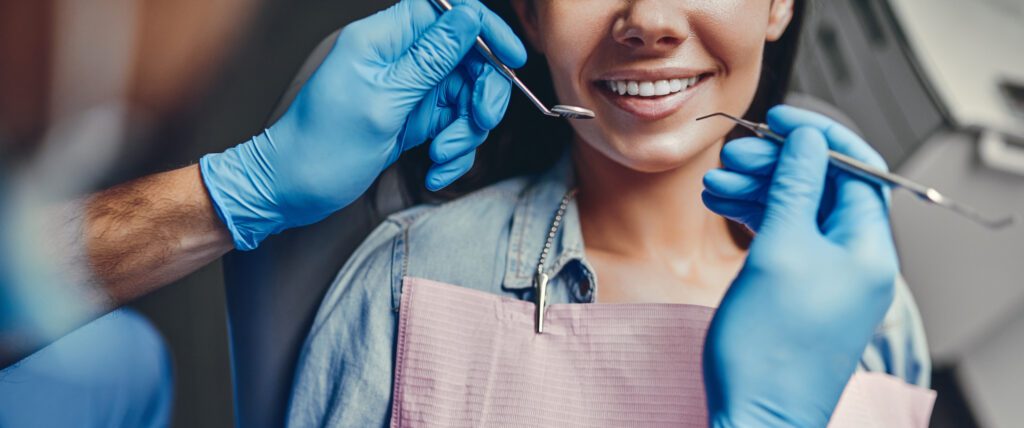Let’s be honest, most people don’t love going to the dentist for routine cleanings. Whether it’s because of anxiety, a busy schedule, or just feeling uncomfortable, it’s easy to put off your appointment. But skipping dental cleanings in Baltimore, MD, can lead to bigger problems like cavities, gum disease, and even tooth loss. Getting your teeth cleaned every six months is one of the best ways to keep your smile healthy and catch any issues early.

Why Regular Teeth Cleanings Are So Important
While it’s okay to reschedule if something comes up, it’s really important to stick to your regular cleaning schedule. Here’s why:
1. Removing Plaque and Tartar Buildup
Tiny bits of food can stick to your teeth and gums when you eat. Over time, these particles turn into a sticky film called plaque. If plaque isn’t removed, it hardens into tartar. Only a dentist can remove tartar. Plaque and tartar are the main culprits behind tooth decay and gum disease.
Brushing and flossing at home can help remove some plaque, but they can’t get rid of tartar. That’s why professional cleanings are so important. During your cleaning, your dentist or hygienist will use special tools to remove plaque and tartar. Your teeth will feel clean and your mouth healthy when you leave.
2. Catching Problems Early
The earlier you catch a dental problem, the easier it is to treat. During your cleaning, your dentist will also examine your mouth for signs of trouble. For example, if they spot a small cavity, they can fill it before it turns into a bigger issue. But that small cavity could grow and eventually require a root canal or even a crown if you skip your cleaning.
Regular cleanings give your dentist a chance to catch problems early, when they’re easier and less expensive to treat.
3. Preventing Dental Problems
Cleanings aren’t just about removing plaque and tartar. They’re also a great way to prevent future problems. During your visit, your dentist might apply a fluoride treatment to strengthen your teeth and protect them from decay. They might also give you tips on how to improve your brushing and flossing routine at home.
By staying on top of your cleanings, you can reduce your chance of getting serious dental issues down the road. This means fewer fillings, fewer root canals, and fewer emergencies.
What Happens During a Dental Cleaning?
If it’s been a while since your last cleaning, you might be wondering what to expect. Here’s a quick rundown:
- Exam: Your dentist or hygienist will check your teeth and gums for any signs of problems.
- Scaling: Using special tools, they’ll remove plaque and tartar from your teeth.
- Polishing: They’ll polish your teeth to remove surface stains and make them shine.
- Fluoride Treatment: You might get a fluoride treatment to strengthen your enamel and protect against cavities.
- Tips and Advice: Your dentist will give you tips on how to take care of your teeth at home.
Why Choose Cosmetic and Advanced Dentistry?
At Cosmetic and Advanced Dentistry, we believe in the power of preventive care. Regular cleanings are one of the best ways to keep your teeth and gums healthy and avoid more serious problems. If you haven’t had a cleaning in a while, don’t worry. We’re here to help you get back on track.
Frequently Asked Questions
How often should I get a dental cleaning if I have gum disease?
If you have gum disease, we may recommend a cleaning every 3 to 4 months instead of the standard 6-month schedule. More frequent cleanings help remove plaque and bacteria contributing to inflammation and bone loss. The goal is to control the infection and prevent it from worsening. Your cleaning schedule depends on how advanced the condition is.
Can dental cleanings help with bad breath?
Yes, regular dental cleanings can significantly reduce bad breath. Professional cleanings remove plaque, tartar, and buildup of bacteria that brushing and flossing alone can’t eliminate. These bacteria are often the source of chronic halitosis. Cleanings also help detect other oral health issues that might contribute to bad breath.
What’s the difference between a regular cleaning and a deep cleaning?
A regular cleaning, or prophylaxis, removes plaque and tartar from above the gumline and is meant for patients with healthy gums. A deep cleaning, also called scaling and root planing, targets areas below the gumline to treat gum disease. It involves cleaning out periodontal pockets and smoothing root surfaces to encourage healing. Deep cleanings are more extensive and may require local anesthesia.
Is it normal for my gums to bleed during a cleaning?
Mild bleeding can occur during cleaning, especially if you have inflammation, gum disease, or haven’t had a cleaning in a while. Bleeding is your body’s response to built-up plaque and tartar irritating the gums. With regular cleanings and improved oral hygiene, the bleeding usually lessens over time. Dr. Lazer will let you know if the bleeding indicates a more serious issue.
Will my dental cleaning remove coffee or tea stains?
Yes, professional dental cleanings can remove surface stains caused by coffee, tea, or smoking. Your hygienist uses tools and polishing pastes that break down and lift external stains from enamel. However, deeper or internal stains may require whitening treatments for a noticeable change. Cleanings help maintain a brighter smile between whitening procedures.
Do cleanings hurt if I have sensitive teeth?
If you have sensitive teeth, cleanings can sometimes cause temporary discomfort, especially around exposed roots or gum recession. Let your hygienist know beforehand – they can use gentler techniques, desensitizing polish, or numbing gel to help. With regular cleanings and good hygiene, sensitivity often improves. Post-cleaning sensitivity usually fades within a day or two.
What happens if I haven’t had a cleaning in several years?
If you’ve skipped cleanings for several years, you may have significant plaque and tartar buildup, gum inflammation, or even early signs of gum disease. Your cleaning may take longer and require deeper scaling or follow-up visits. It’s still safe to return. Dr. Lazer will evaluate your current oral health and create a plan to restore it. Starting again can prevent further damage and future tooth loss.
Don’t wait until you have a problem to see the dentist. Regular cleanings are the key to a healthy smile. Call us today at (410) 697-6290 to schedule your appointment. Let us help you keep your teeth clean, strong, and healthy for years to come.
Regular dental cleanings might not be the most exciting part of your routine, but they’re one of the most important. By removing plaque and tartar, catching problems early, and preventing future issues, cleanings can save you time, money, and stress in the long run. Don’t put it off, schedule your cleaning today and take the first step toward a healthier smile!
